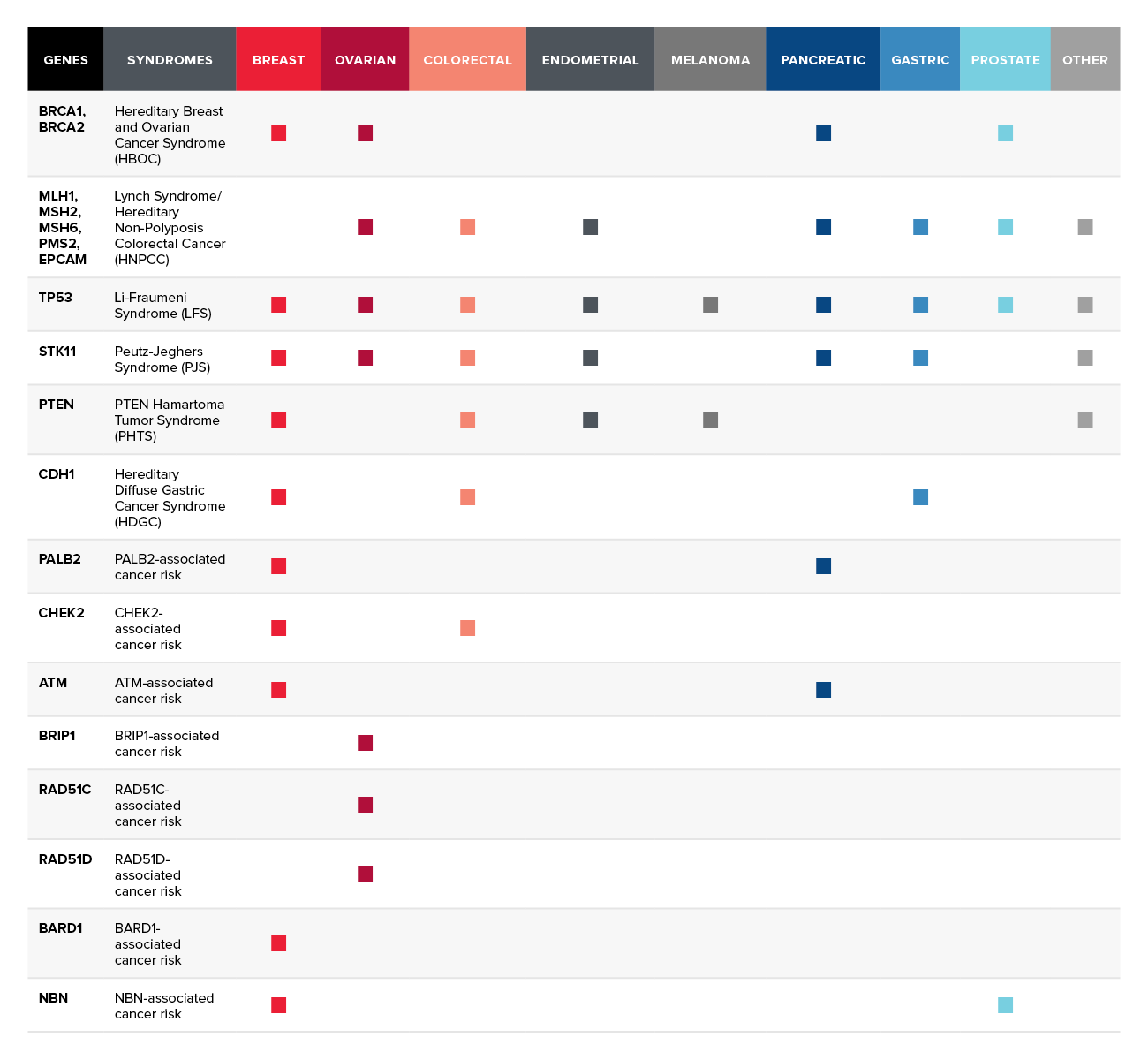Genetic Counseling
To locate a genetic counselor at Penn Medicine, contact the MacDonald Cancer Risk Evaluation Center at 215-349-9093. You can also search the National Society of Genetic Counselors’ Find a Genetic Counselor tool or contact your local cancer center. Genetic counselors who perform BRCA testing are often a part of the breast group of academic medical centers or cancer centers.
Introduction to Genetic Testing: Pancreatic and Prostate Cancer
Germline genetic testing for cancer susceptibility is currently recommended for pancreatic and advanced prostate cancer patients due to potential implications for targeted therapies and risk assessment of family members. To assist with the integration of genetic testing into standard oncology care, the following two videos were created for pre-test education. These videos, used in conjunction with a health care provider introduction, can help streamline the genetic testing process. These videos are being made available for viewing in an effort to share existing resources and increase genetic testing rates in those with pancreatic and advanced prostate cancer. Videos were created via a collaborative project with Memorial Sloan Kettering Cancer Center and the Basser Center for BRCA at the University of Pennsylvania with funding from the Basser Center for BRCA and the Basser Initiative of the Gray Foundation.
Disclaimer: The Video Content has been made available for informational and educational purposes only. The Basser Center does not make any representation or warranties with respect to the accuracy, applicability, fitness, or completeness of the Video Content. The Video Content is not intended to be a substitute for professional medical advice, diagnosis, or treatment. Always seek the advice of your physician or other qualified health provider with any questions you may have regarding a medical condition. Never disregard professional medical advice or delay in seeking it because of something you have read or seen on the Site. The Basser Center hereby disclaims any and all liability to any party for any direct, indirect, implied, punitive, special, incidental or other consequential damages arising directly or indirectly from any use of the Video Content, which is provided as is, and without warranties.
Cancer Genetic Testing: Webinars for for Physicians and Other Healthcare Providers
Susan Domchek, MD, Basser Center executive director, leads a physician-focused webinar with the most up to date recommendations for providers on identifying patients appropriate for a cancer risk assessment or who should seek genetic counseling and testing.
Basser Center executive director Susan Domchek, MD, presents a webinar on cancer genetic testing for physicians and other healthcare providers. She discusses genetic testing for cancer predisposition syndromes; panel testing including BRCA and other genes; genetic research updates, and more.
BRCA Testing Laboratory Resources
This information is tailored toward breast and ovarian cancer susceptibility genetic testing and is not intended to reflect all labs that offer genetic testing; information is subject to change. Please refer to https://www.cancer.gov/types/breast/hp/breast-ovarian-genetics-pdq for an overview on the genetics of breast and gynecological cancers.
- Most commercial labs offer options of single gene testing (BRCA1/2 only) as well as multigene panel testing options.
- Patients with active hematologic malignancy or prior allogeneic stem cell transplant cannot use blood or saliva (buccal) samples for genetic testing. Testing for these patients requires DNA from fibroblast samples via skin punch and cell culture.
- Providers are responsible for ensuring informed consent from patients; informed consent documents are available on most lab websites. Labs may request patient and/or provider signature (or e-signature) to indicate informed consent has been obtained.
Insurance-Specific Requirements & Reporting
Medicare, Aetna, Cigna, UHC: These insurances each have specific BRCA testing criteria for insurance coverage.
- Cigna has a specific precertification requirement for individuals to receive pre-testing genetic counseling from a genetics provider meeting Cigna standards.
- United Health Care (UHC): Some UHC insurances require provider to submit pre-authorization via UHC portal
Laboratories* offering hereditary breast and ovarian cancer genetic testing and not limit to breast and ovarian
*This is not a comprehensive list of all laboratories.
Ambry - https://www.ambrygen.com
Color Genomics - https://www.color.com
GeneDX - https://www.genedx.com
Invitae - https://www.invitae.com
LabCorp - https://www.labcorp.com/
Myriad - https://myriadmyrisk.com/
Quest Diagnostics - https://www.questdiagnostics.com/

Public Databases and Other Resources
- CanVIG-UK
- The Cancer Variant Interpretation Group UK (CanVIG-UK) is a national multidisciplinary professional network with over 100 members representing the 25 Molecular Diagnostic Laboratories and Clinical Genetics Services of the UK (NHS) and Ireland.
- ClinVar - National Library of Medicine
- ClinVar is a freely accessible, public archive of reports of the relationships among human variations and phenotypes, with supporting evidence.
- BRCA Exchange
- The BRCA Exchange aims to advance our understanding of the genetic basis of breast, ovarian, pancreatic and other cancers by pooling data on BRCA1/2 genetic variants and corresponding clinical data from around the world.